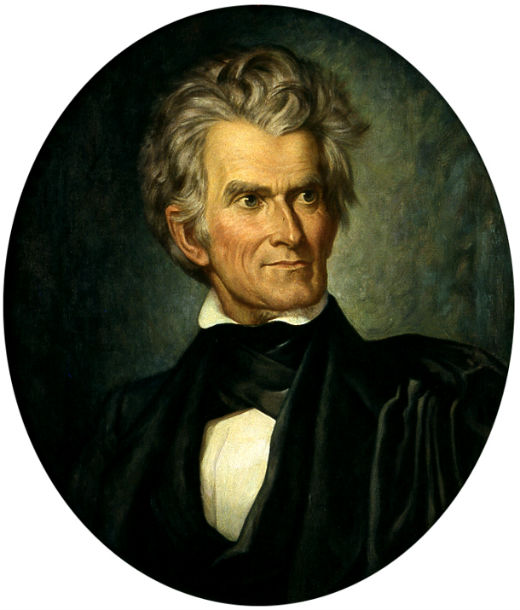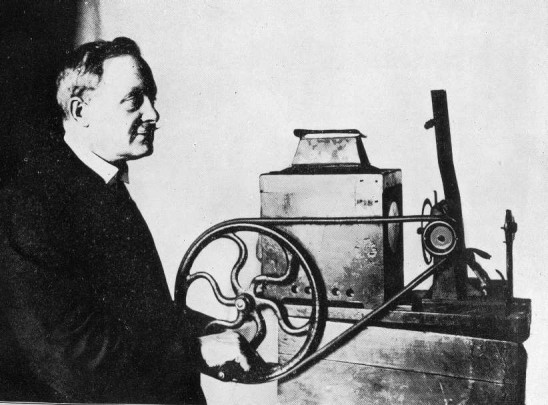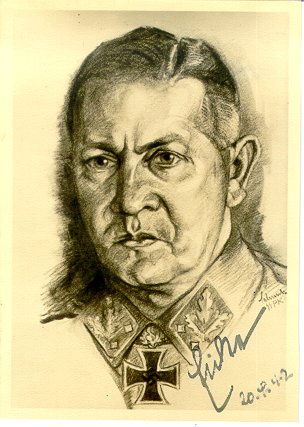December 28

1170 Thomas A Becket, Archbishop of Canterbury, is murdered by four knights acting on the orders of England's King Henry II.

1732 The Pennsylvania Gazette, owned by Benjamin Franklin, runs an ad for the first issue of "Poor Richard’s Almanack". The ad promises “...Many pleasant and witty verses, jests and sayings ... new fashions, games for kisses ... men and melons ... breakfast in bed, &c.” Poor Richard’s Almanack will be published from 1733 to 1757 by Richard Saunders, who is really Ben Franklin. An almanac is a calendar, but Franklin will find room on his calendars to include short, witty sayings about daily situations. This unique idea is a popular success and Franklin will become very rich. (Bradley)

1832 John C. Calhoun becomes the first vice president of the United States to resign, stepping down over differences with President Jackson. "...the President of The United States at the time, Andrew Jackson, said that nullification was paramount to treason and threatened to hang Calhoun and his followers. They had such horrible feelings towards it because they thought it could lead to anarchy, with each state making it's own laws. However, Calhoun was misunderstood. Calhoun in fact wanted this to be a mode of avoiding disunion. He said "Whether I am a nullifier or not will depend on the meaning to be attached to the word. If it means a disunionist, a disorganizer, or an anarchist then...I am utterly opposed to it." John Calhoun felt that if nullification were used then there would be no injustice against the south and the south would have no reason to secede. He believed that the south should "only think of secession in the last extremity" The essential difference between the views of Vice President Calhoun and President Jackson, could be seen at a party for Jefferson on April 13, 1830. At this party everyone in the room gave toasts. After a few toasts Jackson was introduced. He raised his glass, turned and stared directly at Calhoun, and then proclaimed "Our union, it must be preserved." Next, Calhoun rose and addressed the President. "The union, next to our liberty most dear." Jackson related nullification with disunion, while Calhoun wanted liberty for all American citizens. Only if nullification could not achieve liberty would Calhoun endorse disunion. Calhoun's view of nullification is an extreme support for state's rights. He wanted to give each state the right to nullify a federal law. The reason for this is that he didn't trust the majority that was ruling the federal government. His feelings were that if the majority continued to have unrestricted control they would take away the liberty of the south. In one of Calhoun's speeches he talked about how often politicians were "compelled to vary our course in order to preserve our principles." This is the reason why Calhoun decided to switch from being a nationalist to a supporter of states' rights. One can see this clearly by following Calhoun's defense of slavery..."

1845 Texas becomes the 28th US state. Note: In the late 1500's the vast plains of the territory that is now Texas was being explored by Spain. The first white settlement was established in Ysleta in 1681. American interest in the area increased after the Louisiana Purchase in 1803. In 1819 after Spain relinquished Florida to the United States, taking advantage of Spain's desire to keep its title to Texas, Secretary John Adams induced the Spanish minister Luis de Onis to agree to a dividing boundary that ran north of Texas all the way to the Pacific Ocean. By 1821 Moses Austin had secured a grant from the Spanish to bring American settlers into Texas. The grant was confirmed in 1823 to his son, Stephen F. Austin by Mexico. Continuous conflicts between the Mexican settlers and Americans led to the Fredonian Rebellion from 1826 to 1827. Attempting to gain independence from Mexico, revolutions led to a heroic but hopeless defense of a well fortified fort known as the Alamo against Santa Anna in February of 1836. Santa Anna demanded surrender which aroused fighting anger among Texans. Six weeks after this battle, Texans under the command of Sam Houston defeated the Mexicans at San Jacinto all the while crying, "Remember the Alamo."

Texas remained an independent republic until its annexation to the United States on this day, making it the 28th state to join the Union. The Capitol is established in Austin.

1856 Birth: Woodrow Thomas Wilson, 28th US President. "...Born in Virginia in 1856 and raised in Georgia and South Carolina, Wilson's early memories included seeing Yankee soldiers marching into Augusta at the end of the Civil War. Wilson's father was a Presbyterian minister who fervently supported the South's secession from the Union. Because of the war's disruption, much of Wilson's early education came from his father at home. In 1875, he entered Princeton, graduating in 1879. After a brief period at the law school of the University of Virginia, he studied on his own and passed the Georgia bar examination. Bored as a lawyer in Atlanta, he enrolled at Johns Hopkins University, where he earned a Ph.D. in history and political science in 1886. After a successful academic career as an author and professor at Bryn Mawr, Wesleyan, and Princeton, Wilson was elected president of Princeton in 1902. In that office, his efforts to modernize the college brought him attention as a progressive reformer, and in 1910, New Jersey Democrats approached him about running for governor. Wilson accepted, but on the condition that their support come with "no strings attached." From this point, Wilson's rise to national power was astonishingly rapid. As governor of New Jersey, he immediately began to fight machine politics and party bosses, securing campaign finance reform, a primary law to permit voters rather than party bosses to nominate candidates, and a program to compensate workers injured on the job. In 1912, Wilson used his reputation as a progressive with strong southern roots to run for the presidency as a Democrat..."

1859 The first iron-hulled armored warship, Britain's HMS Warrior, is launched.
1869 William E. Semple, of Mt. Vernon, Ohio, patents “the combination of rubber with other articles adapted to the formation of an acceptable chewing gum." (Bradley)
1877 John Stevens, of Neenah, Wisconsin, applies for a patent for his flour-rolling mill, which boosts production by a significant 70%.

1895 The Jameson Raid into the Transvaal to aid the Uitlanders (mainly British settlers) in the Boer republic, begins.

1895 The Lumiere brothers, Antoine and Louis, unveil their Cinematograph in the basement of the Grand Cafe in Paris. Only 33 people pay to see it. (Bradley)
1911 Birth: Sam Levinson, US humorist; Today I Am A Fountain Pen.
1911 Sun Yat Sen becomes the first president of the Chinese Republic.

1914 WW1: Benito Mussolini, editor of the Milan Socialist party newspaper Avanti!, is at first opposed to Italy's involvement in the war but soon reverses his position and calls for Italy's entry on the side of the Allies. Expelled from the Socialist party for this stance, he founds his own newspaper in Milan, Il popolo d'Italia which will later become the party newspaper of the Fascist movement. Mussolini will serve in the Italian army until wounded in 1917.
1918 British Women vote for the first time as Lloyd George is reelected.
1920 Volkishness: Theodor Czepl visits Karl Maria Wiligut (Weisthor) in Salzburg and stays for seven weeks. He is said to have visited with Wiligut on at least two other occasions during this period. Czepl records his visits in detail in a memorandum prepared for the Order of the New Templars (ONT). (Mund; Roots) Note: Wiligut (Weisthor) identifies with a religion he calls Irminism, which he says is distinct from, and the opponent of Wotanism. Irminists, he claims, celebrate Krist, a Germanic god, who Christianity had bowdlerized and then appropriated as its own savior. (Roots)

1922 Birth: Stan Lee, comic book writer; will create for Marvel Comics the characters Spiderman, Daredevil, The Hulk, The Fantastic Four, X-Men, and many others.

1928 Weimar: Theodor Eicke joins the Nazi party and enlists in the SA. Eicke works as a security guard for I.G. Farben.

1933 Volkishness: The Ahnenerbe, the Society for the Study of Ancestral Heritages, is privately founded by Frederick Hielscher, a mystic and friend of Swedish explorer Sven Hedin, who himself was closely associated with Karl Haushofer. (Pauwels)

1934 Volkishness: The Edda Society's publication Hagal devotes three issues to the ancestral memory and mystical family traditions of Karl Maria Wiligut (Weisthor). (Roots)
1935 Volkishness: Michael Prawdin (Michael Charol) publishes The Legacy of Genghis Khan, a sequel to his 1934 book on the same subject. Both are avidly read by Heinrich Himmler, who strongly recommends them to all those around him, including Hitler. (Architect)
1936 Church and Reich: The influential Jesuit magazine Civilta Cattolica published in Rome emphasizes that opposition to Nazi racialism should not be interpreted as a rejection of anti-Semitism, and argues, as the magazine had done since 1890, that the Christian world (though without unchristian hatred) must defend itself against the Jewish threat by suspending the civic rights of Jews and returning them to the ghettos.
1936 The German government gives the National Association of German Catholics Abroad a sum of more than 139,000 marks, in 1936 alone, for its pro-German and pro-Nazi activities among the German minorities of Poland, Romania, and Yugoslavia. (Lewy)
1937 King Carol of Romania appoints Octavian Goga and Alexander Cuza to head a National Christian Party government. During its 44 days in power it issues numerous anti-Jewish decrees.
1937 The Constitution of the Republic of Ireland goes into effect.
1938 Holocaust: Jews are forbidden to use sleeping compartments or dining cars on German railways.
1940 WW2: German aircraft drop thousands of incendiary bombs on London, destroying some cherished buildings.
1942 Holocaust: The research ward run by the Heidelberg psychiatrist Professor C. Schneider in Wiesloch comes into full operation. In this ward, idiots and epileptics are physiologically and psychologically investigated. After their euthanasia elsewhere, their brains are anatomically and histologically studied. (Science)

1942 Stalingrad: Hitler sanctions a withdrawal by Army Groups Don and A to the line Konstantinovsk-Salsk-Armavir. This puts the army groups 125 miles away from Stalingrad and aggravates the resupply of Paulus still further. Even so, Hitler declares that he still intends to relieve the Sixth Army. Meanwhile the Russians can now prepare and execute the final reduction of the Stalingrad pocket. The final destruction of the German pocket at Stalingrad is to involve seven armies commanded by Rokossovsky's Don Front. Three of these were transferred from Yeremenko's Stalingrad Front, which on 1 January 1943 is renamed the South Front. This is to continue the attacks against von Manstein. (Messenger)
1942

1943 WW2: Canadian troops complete the capture of Ortona.

1943 WW2: Robert Oppenheimer establishes the Los Alamos laboratory to build the US atomic bomb.
1944 WW2: Soviet tanks enter Budapest.
1952 The first transistor hearing aid is marketed in the United States.
1961 A group of IBM engineers release a proposal that will reinvent the entire company. The proposal, called the SPREAD (Systems Programming Review, Engineering and Development) report, recommends that IBM scrap all of its existing mainframe computers and launch an entirely new line. The measure, while radical, would remedy a potentially fatal problem facing IBM: Each machine the company makes requires its own custom software and programming. The new line of computers, to be called System/360, will allow programs from one machine to run on another. The company will spend a reported $5 billion developing the System/360 line, and in the end, the gamble will pay off. In the three years following the System/360 launch, IBM's staff will grow by fifty percent to nearly 250,000 employees. The System/360 line will drive IBM's growth over the next three decades. (Bradley)
1965 The Nam: President Ho Chi Minh of North Vietnam rejects unconditional peace talks offered by US.

1973 Alexander Solzhenitsyn publishes Gulag Archipelago. "...the Soviet government denounced Solzhenitsyn's Nobel Prize as a politically hostile act. The first volume of The Gulag Archipelago appeared in 1973. (Gulag stands for "Chief Administration of Corrective Labor Camps.") For the work Solzhenitsyn collected excerpts from documents, oral testimonies, eyewitness reports, and other material, which all was inflammable. The detailed account of the network of prison and labor camps - scattered like islands in a sea - in Stalin's Russia angered the Soviet authorities and Solzhenitsyn was arrested and charged with treason. In 1974 the author was exiled from the Soviet Union. He lived first in Switzerland and moved then in 1976 to the United States, where he continued to write..."
1975 A bomb explosion at New York City's La Guardia airport kills 11 people.
1981 Birth: Elizabeth Jordan Carr, the first American 'test-tube' baby, in Norfolk, Virginia.
1981 US President Reagan announces a program of economic sanctions against the Soviet Union because of its alleged role in the imposition of martial law in Poland.
1983 The United States formally announces its intention to withdraw from UNESCO at the end of 1984.
1989 Playwright Vaclav Havel, jailed for five years for his human rights activities and long denounced in the communist media as an enemy of the state, is sworn in as president of Czechoslovakia.
1989 Alexander Dubcek, the former Czechoslovak Communist leader who was deposed in a Soviet-led Warsaw Pact invasion in 1968, is named chairman of the country's parliament.
1993 After 2,000 years of often hostile Christian-Jewish relations, the Vatican and Israel approve a document in which the Holy See and the Jewish state recognize each other.
2001 Pakistan and India move closer to all-out war as border troops shell each other in the disputed Jammu-Kashmir region. The Indian army also orders the evacuation of border towns.
2001 Pakistan warns the US they may no longer provide logistic support in the search for al-Qaeda leaders, saying the Pakistani troops are required for support in the looming conflict with India.

2001 General Tommy Franks meets with US President Bush at Bush's Crawford, Texas, ranch where Bush tells reporters, Osama bin Laden "is a guy who three months ago was in control of a country. Now he's maybe in control of a cave. He's on the run."
2001

2002

2003

2004

2004

2004

2004

Visit:
 Visit:
Visit:

Click Here to email the History: One Day At a Time webmaster.































 Visit:
Visit:
